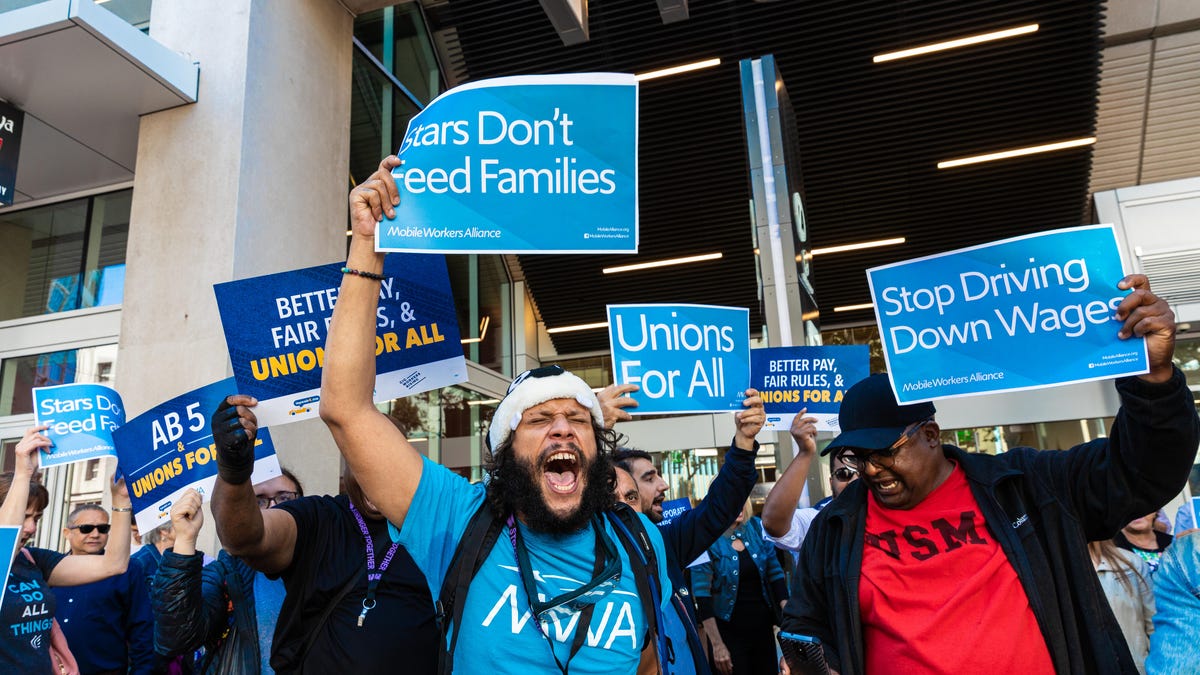Uber sues California to block gig worker law going into effect this week
The complaint says AB 5 unfairly targets companies and workers in the on-demand economy.

Ride-hail drivers protest in favor of California's AB 5.
Ride-hailing service Uber filed a lawsuit Monday against the state of California, alleging that a landmark gig worker law, set to go into effect Wednesday, is unconstitutional. The lawsuit seeks to block AB 5, which has the potential to upend gig economy companies such as Uber and Lyft .
The complaint, which also lists Postmates as a plaintiff, argues that the law unfairly targets workers and companies in the on-demand economy, treating them differently than their traditional counterparts and threatening their flexibility.
In September, California became the first state to pass a law aimed at protecting gig worker rights, which forces Uber, Lyft, DoorDash, Postmates and other gig economy companies to reclassify their workers as employees. Currently, these workers are classified as independent contractors, which allows the companies to shift costs onto them.
The lawsuit says the law arbitrarily exempts dozens of occupations, including direct salespeople, travel agents, grant writers, commercial fishermen and construction truck drivers.
"There is no rhyme or reason to these nonsensical exemptions, and some are so ill-defined or entirely undefined that it is impossible to discern what they include or exclude," says the complaint (see below), which was filed in a Los Angeles federal court.
Gig workers typically don't get benefits like health insurance, paid sick days and overtime. In addition, Uber and Lyft drivers have to pay for their own cars, gas, vehicle maintenance and insurance. Many drivers say this system has led to exploitation.
Uber and Lyft have both said their businesses could be broken if they're required to reclassify their drivers as employees. The two companies have spent $30 million each to sponsor a ballot initiative for November 2020 that could exempt them from the law.
Monday's lawsuit asks the court to block AB 5 from going into effect on Wednesday, alleging that it's unenforceable because it violates equal protection clauses in the US and California constitutions in treating network and non-network companies differently.
Under the law, all companies using independent contractors in the state will be put to a three-part test that looks at how much control the company has over its workers, such as whether it has workers wear uniforms, use its equipment and follow its business mandates.
Lyft has said AB 5 doesn't automatically reclassify drivers as employees, while Uber told CNET that it has "no plans to re-classify our drivers or change our business model."
The California Attorney General's Office couldn't immediately be reached for comment.
CNET's Dara Kerr contributed to this report.

